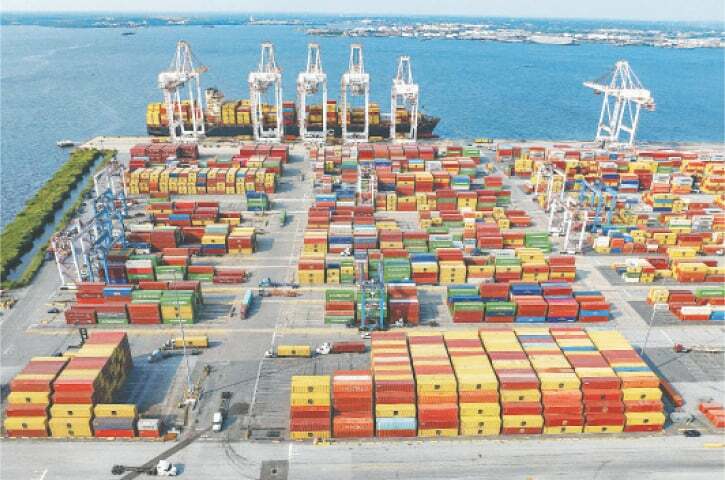WASHINGTON: US President Donald Trump’s sweeping tariff hike on imports from dozens of countries took effect on Thursday, pushing the average US import duty to its highest level in a century and prompting key trade partners — such as India, Brazil, and Switzerland — to urgently seek exemptions.
The US Customs and Border Protection began collecting the new duties — ranging from 10pc to 50pc — at 12:01am EDT (0401 GMT), following weeks of suspense over final rates and frantic negotiations with governments hoping to reduce their exposure.
The revised rates form part of Trump’s broader strategy to reduce the US trade deficit, support domestic manufacturing, and exert pressure on countries purchasing Russian oil. However, critics warn of supply chain disruptions, inflationary pressures, and retaliation from affected nations.
Trump’s so-called “Liberation Day” tariffs were first proposed in April but have since undergone several revisions. Under the latest measures, tariffs have risen to 50pc on goods from Brazil, 39pc from Switzerland, 35pc from Canada, and 25pc from India. On Wednesday, Trump added another 25pc on Indian imports over its continued oil trade with Russia, raising the effective rate to 50pc.
Sparks defiance and concern among close trade partners
“Billions of dollars, largely from countries that have taken advantage of the United States for many years, laughing all the way, will start flowing into the USA,” Trump posted on Truth Social, hours before the tariffs took effect.
Tariffs are levied on importers, with increased costs typically passed on to consumers. Trump’s top trade negotiator, Jamieson Greer, defended the policy in a New York Times column, arguing that international trade rules “cannot be a suicide pact,” and said the new duties represent “bold leadership” to rebalance global trade dynamics.
So far, eight major trade partners — accounting for around 40pc of US trade — have reached framework deals with Washington, securing lower base tariff rates. These include the EU, Japan, and South Korea. The UK secured a 10pc rate, while Vietnam, Indonesia, Pakistan, and the Philippines received concessions lowering duties to 19pc-20pc.
Countries facing higher tariffs, however, continue to scramble. Switzerland’s President Karin Keller-Sutter returned home empty-handed from an 11th-hour visit to Washington. South Africa’s last-minute effort to revise its offer also failed, though talks are ongoing. Vietnam said it would continue negotiations to reduce its current 20pc tariff, previously set at 46pc.
Brazilian President Luiz Inácio Lula da Silva told Reuters he would not “humiliate” himself by seeking a call with Trump, but confirmed cabinet-level talks to reduce Brazil’s 50pc rate would continue. Indian Prime Minister Narendra Modi also refused to make concessions, citing domestic farmers’ interests. The pressure, however, has reinforced India’s commitment to its “strategic partnership” with Russia, with President Vladimir Putin expected to visit later this year.
Lula also hinted at a joint response from BRICS countries. “I will speak to the leaders of India and China,” he said, as Trump has repeatedly criticised the bloc and threatened another 10pc tariff on BRICS imports.
Published in Dawn, August 8th, 2025
